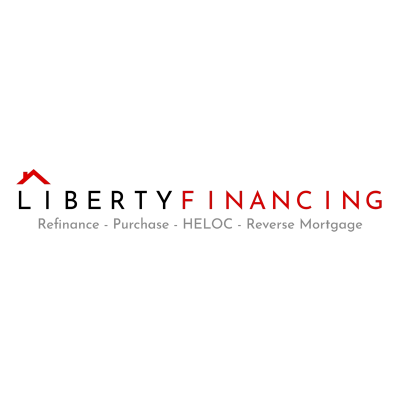How a Business Coach Challenged Assumptions for Better Decision-Making
In the pursuit of business excellence, wisdom often lies in questioning the usual patterns and embracing expert insights. This article unpacks the transformative advice from seasoned pros who have mastered the art of making smart, sustainable decisions. Discover strategies that not only challenge conventional assumptions but also pave the way for a future-proof enterprise.
- Optimize for Sustainability, Not Just Speed
- Shift Focus from Rapid Growth to Longevity
- Sell Solutions, Not Just Products
- Empower Your Team Through Delegation
- Build a Strong Foundation Before Scaling
- Increase Profitability by Refining Your Approach
- Prioritize Deal Quality Over Quantity
- Maximize Existing Resources Before Expanding
- Ensure Your Business Is Ready to Scale
- Transform Perceived Weaknesses into Unique Advantages
- Grow Smarter, Not Just Bigger
- Enhance User Experience Over Feature Overload
- Integrate Holistic Approach for Stronger Retention
- Strengthen Operations Before Expanding Further
- Boost Efficiency Through Effective Time Management
- Reframe Legal Services as Strategic Business Assets
- Focus on What Matters, Not Just Hard Work
Optimize for Sustainability, Not Just Speed
Early in my journey with Nerdigital.com, I believed that scaling fast was the only way to succeed. I was laser-focused on growth metrics--expanding services, increasing headcount, and chasing bigger clients. But my business coach challenged me with a simple question:
"Are you building for sustainability or just speed?"
At first, I brushed it off--I thought growth was the goal. But he pushed me to take a step back and analyze profitability, operational efficiency, and long-term brand positioning rather than just chasing revenue. He had me dig into the numbers, and the reality hit hard:
We had high client churn because we weren't refining our core services.
Our team was overextended, leading to burnout and inconsistent quality.
Profit margins were shrinking despite higher revenue.
That conversation was a turning point. Instead of expanding recklessly, we refined our processes, improved client retention, and streamlined operations. Within a year, we doubled profitability without needing to double our client load.
Lesson Learned
Growth for the sake of growth isn't sustainable. My coach taught me that sometimes, the best move isn't to scale up--it's to optimize. For anyone feeling the pressure to "go big fast," ask yourself: Is this growth meaningful, or just growth for growth's sake?

Shift Focus from Rapid Growth to Longevity
A business coach once challenged my obsession with scaling fast, and it completely shifted my approach. I was convinced that rapid growth was the only way forward, pushing for aggressive expansion without fully considering whether the foundation was strong enough. My coach asked a simple but powerful question: "Are you building for longevity or just chasing numbers?" That stopped me in my tracks.
At the time, I was focusing on increasing revenue, but I hadn't optimized operations or retention strategies. Instead of growing recklessly, I refocused on improving customer experience, refining processes, and making sure the business could sustain long-term success. That shift led to higher profitability, lower churn, and a stronger reputation in the market. The biggest lesson? Growth isn't just about speed—it's about sustainability. That one conversation saved me from scaling a business that wasn't ready, and it's a perspective I carry with me in every decision now.

Sell Solutions, Not Just Products
A business coach once made an observation that changed everything: customers don't buy products--they buy solutions to problems. The assumption was that quality and innovation alone would drive success. That was wrong. People cared more about convenience, trust, and how a product fit into their daily lives.
This realization forced a shift in strategy. Instead of focusing on product features, messaging highlighted real-life benefits. A busy parent didn't need another detergent--they needed something that saved time and reduced hassle. Marketing became clearer, and customer engagement improved. Retention rates climbed because the product is now connected with people's actual needs.
Beyond marketing, this mindset transformed product development and customer service. Every decision had to pass a new test: Does this make life easier? That single insight reshaped the entire business approach, proving that the biggest breakthroughs come from rethinking assumptions.

Empower Your Team Through Delegation
I once worked with a business coach who challenged my assumption that I needed to be involved in every minute detail of the company's operations. At the time, I was overwhelmed by a desire to maintain complete control, fearing that delegating tasks might lead to mistakes or loss of quality. My coach shared a perspective that true leadership means trusting your team and empowering them to own their roles. This conversation forced me to reassess my management style, leading me to delegate key responsibilities and implement a system of accountability that not only distributed the workload but also fostered team growth.
This shift in perspective had a significant impact on my decision-making. By allowing my team more autonomy, I noticed an improvement in efficiency and creativity across the board, and our business operations became more agile and responsive to market changes. Embracing this new approach not only reduced my personal stress but also enhanced our overall performance, reaffirming the value of open-mindedness and the importance of trusting others with critical tasks.
Build a Strong Foundation Before Scaling
A business coach once challenged my assumption that scaling fast was always the best strategy for growth. At the time, I was focused on aggressively expanding our marketing services--adding new offerings, hiring rapidly, and increasing ad spend. I believed that the faster we grew, the more market share we would capture. However, my coach pushed me to rethink this approach, asking: "Is your infrastructure built to sustain this growth, or are you just chasing numbers?"
That question forced me to take a step back and evaluate our internal processes, team capacity, and client retention. Upon closer analysis, I realized we were experiencing operational inefficiencies--new hires weren't fully onboarded, our client service quality was slipping, and our cash flow was stretched thin. Instead of continuing down that path, I shifted focus to sustainable scaling, prioritizing process optimization, automation, and strengthening our core services before expanding further.
This perspective shift had a significant impact on our decisions. We refined our service delivery, improved client retention, and optimized internal workflows before reinitiating expansion. As a result, when we did scale, it was more efficient, profitable, and sustainable. The lesson? Growth isn't just about speed--it's about building the right foundation first.

Increase Profitability by Refining Your Approach
Early in my business, I was stuck in the mindset that the only way to scale was to take on more clients. More work = more revenue, right? A business coach challenged that assumption and asked, "What if scaling wasn't about doing more, but about doing it differently?"
At the time, I was maxed out, working long hours, and still feeling like I wasn't hitting the revenue goals I wanted. My coach helped me step back and look at my pricing, service structure, and overall business model. Instead of just adding more clients, we focused on increasing profitability per client by raising my prices to reflect the true value of my work and creating a model that allowed for better scalability.
That shift completely changed how I approached growth. I moved from just "doing more" to building a business that actually worked for me. It reinforced something I now help my own clients with - sometimes, the biggest roadblock isn't the strategy, but the way you're thinking about it.

Prioritize Deal Quality Over Quantity
A business coach once challenged my assumption that scaling my real estate business meant doing more deals as quickly as possible. I was focused on high-volume transactions, believing that rapid acquisitions would automatically lead to greater profitability.
My coach pushed me to step back and analyze profit margins, operational efficiency, and deal quality over quantity. They had me break down the actual costs--marketing, closing fees, and holding expenses--showing that some fast deals were yielding lower returns than expected. By shifting my focus to higher-margin properties and improving operational systems, I was able to increase overall profits without overextending resources.
This new perspective transformed how I approach scaling, leading me to optimize processes instead of just chasing more deals. The key takeaway was that growth isn't just about doing more--it's about doing better.
Maximize Existing Resources Before Expanding
A while back, I was working with a business coach who really pushed me to reconsider the way I thought about growing my mortgage business. My first instinct had always been to hire more loan officers and boost our marketing efforts, essentially just ramping everything up. It wasn't until my coach asked me, "Have you really looked at whether you're using your current resources effectively?"
That question really stuck with me. It got me thinking differently, and instead of jumping straight into expansion mode, I started looking closer at what we were already doing. We fine-tuned our lead follow-up process, got our existing team extra training, and simplified some internal processes. Almost immediately, we saw more deals close, happier clients, and a smoother workflow, all without adding a bunch of new people or extra expenses. That moment changed how I think about growth, teaching me that sometimes it's not about working harder, but smarter.

Ensure Your Business Is Ready to Scale
A business coach once challenged my assumption that scaling fast was always the best move. I was focused on rapid growth, thinking that more clients automatically meant more success. But my coach pushed me to take a step back and ask: "Is your business ready to scale, or are you just chasing growth for the sake of it?"
That question forced me to evaluate our systems, team capacity, and profit margins. Instead of rushing to expand, we focused on refining operations, improving client experience, and increasing profitability per customer. As a result, when we did scale, we were actually prepared for it—and the growth was sustainable.
The biggest lesson? Bigger isn't always better.

Transform Perceived Weaknesses into Unique Advantages
While I haven't directly mentioned working with a business coach in my profile, I can share a transformative experience I had with a mentor during my transition from traditional banking to the startup world. When I was at Sparda Bank, considering the move to N26, I was initially hesitant about leaving the security of traditional banking. One of the senior consultants at different later challenged my conventional thinking about career progression - they pointed out that my fear of leaving stability behind was actually holding me back from greater opportunities. This conversation fundamentally changed how I viewed risk and opportunity, leading me to embrace the startup ecosystem and eventually create spectup. The mentor helped me realize that my banking background, which I initially saw as a limitation in the startup world, was actually a unique advantage in understanding both traditional and innovative financial systems.
This shift in perspective has shaped how I now guide the 100+ startups we work with at spectup, helping them see their perceived weaknesses as potential strengths. Today, when I see startups struggling with similar limiting beliefs, especially about their ability to attract investors, I remember that conversation and how sometimes we need someone to challenge our core assumptions to grow.

Grow Smarter, Not Just Bigger
Absolutely. A business coach once challenged my assumption that growth always meant scaling fast--and it completely changed how I approached strategy.
At the time, I was focused on aggressively expanding a service-based business, assuming that more clients and bigger projects equaled success. My coach asked, "Is more always better? Or is better... better?" That simple question forced me to rethink my approach. Instead of chasing volume, we analyzed profit margins, client retention, and operational efficiency.
What I realized was that some of our clients weren't actually profitable, and rapid scaling was stretching our team thin. By shifting focus to higher-value clients, optimizing workflows, and refining our offerings, we actually increased revenue while working less.
The impact? We grew smarter, not just bigger. That lesson--growth should be intentional, not reactive--has shaped every major decision I've made since.

Enhance User Experience Over Feature Overload
There was a time when I was working on expanding our product line, and I was convinced that adding more features was the key to attracting new customers. I believed that the more comprehensive our offering, the better we could compete in the market. However, during a session with my business coach, they challenged this assumption by asking me to consider the complexity and potential overwhelm that too many features could create for our existing customers.
The coach encouraged me to shift my perspective and focus on enhancing the user experience rather than just adding features. They suggested conducting customer interviews to understand what truly mattered to our users and where they found value in our product. This was eye-opening because it made me realize that our customers valued simplicity and ease of use over a multitude of features.
As a result, we decided to streamline our product, focusing on refining the core features that our customers loved and improving usability. This decision led to increased customer satisfaction and retention, as users found the product more intuitive and aligned with their needs. The experience taught me the importance of listening to customers and prioritizing their experience, rather than making assumptions based on industry trends or competitor actions. It was a pivotal moment that reshaped our product strategy and ultimately contributed to our growth.

Integrate Holistic Approach for Stronger Retention
A business coach once challenged me to shift my focus from just cosmetic dentistry to a more holistic approach. By emphasizing overall patient wellness and comfort, I integrated advanced technology with personalized care in a calming, luxurious environment. This not only enhanced patient satisfaction but also built deeper trust and loyalty, leading to stronger retention and a more purpose-driven business.

Strengthen Operations Before Expanding Further
A business coach once challenged my assumptions about scaling too quickly in the home-buying industry. I believed that rapid expansion would lead to higher profits, but my coach helped me see that growing too fast without the right systems in place could cause inefficiencies and financial strain.
Through their guidance, I focused on strengthening operations, refining lead generation, and improving customer experience before expanding further. This shift in perspective led to better cash flow management, smoother transactions, and stronger client relationships, ultimately making growth more sustainable and profitable.

Boost Efficiency Through Effective Time Management
One of the first things my business coach did was confront my idea that more time equals more revenue. He showed that efficient time use and delegation was better than nitpicking every project at hand. Therefore, after adjusting my time-sensitive priorities and understanding my daily operations better, I could better train my employees and establish personal boundaries that conveyed to others that I didn't need them but, instead, relied on them to help me reach my goals. The newfound efficiency didn't overstress anyone. Thus, this influenced how I'd manage and operate in the future.

Reframe Legal Services as Strategic Business Assets
One pivotal moment when a business coach challenged my assumptions was during my transition into international legal consultancy, particularly in the blockchain and crypto regulation sector. Initially, I approached my practice with a traditional legal mindset--focusing solely on compliance and risk mitigation. However, my business coach pushed me to reframe my approach and view legal services as an integral part of business strategy rather than just a regulatory requirement.
Through targeted coaching sessions, I realized that clients, especially in emerging tech fields, needed proactive legal guidance that aligned with their innovation goals. This insight led me to develop more client-centric advisory services, focusing on regulatory foresight and strategic compliance rather than just reacting to legal risks.
As a result, I expanded my firm's offerings, incorporated multilingual legal content to reach a broader audience, and started positioning myself as a blockchain-focused legal strategist rather than a traditional attorney. This shift not only strengthened my brand but also attracted high-profile clients who valued legal expertise as a competitive advantage rather than a compliance burden.

Focus on What Matters, Not Just Hard Work
I used to assume that hard work always leads to results. A business coach challenged that belief, showing me that it's not just about how hard you work, but what you focus on that truly matters. Even more importantly, they emphasized that who you have working on it can make all the difference.




